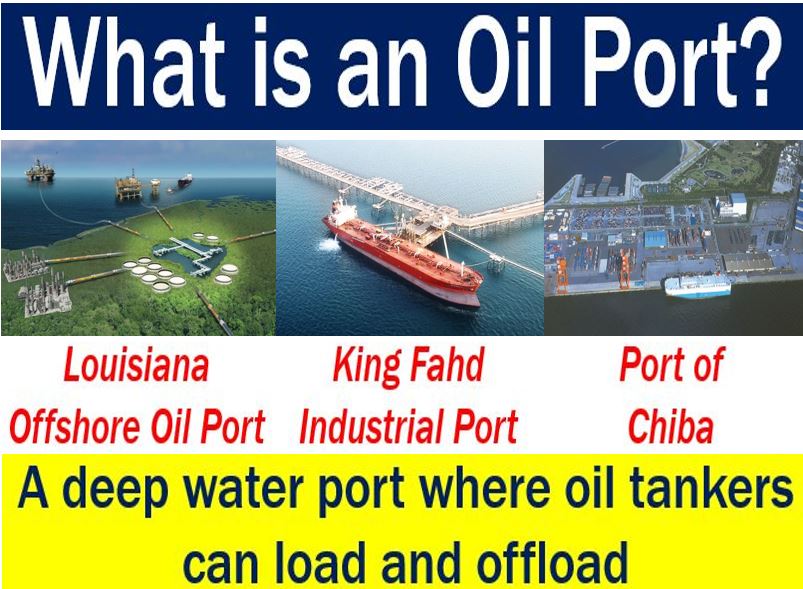An oil port is a port that can accommodate giant oil tankers. It is a deepwater harbor that can receive, load, offload, and store oil. The storage for crude petroleum in oil ports is usually temporary.
We use deepwater ports for very large container ships and oil tankers. These giant vessels can only load and unload in deepwater ports.
The water at most regular ports is not more than twenty feet deep. The water at an oil port, however, must be at least thirty feet deep. In fact, the water in them can be considerably deeper.
The ‘TI Class’ oil tankers, for example, are over 380 meters (1,247 meters) long. They can only load and unload at a deepwater oil port.
Louisiana Offshore Oil Port
Louisiana Offshore Oil Port (LOOP), for example, is a deepwater port, twenty-nine kilometers off the coast of Louisiana. Most oil tankers that offload at LOOP are too big for inland ports.
LOOP handles thirteen percent of America’s foreign oil. In other words, it handles approximately 1.2 million barrels per day. It connects by pipeline to half of the country’s refining capacity.

King Fahd Industrial Port
The King Fahd Industrial Port in Yanbu, Saudi Arabia, is the largest oil port in the Red Sea. It is in the center of shipping routes to Europe and the United States through the Suez Canal. Oil tankers also travel to the Far East through Bab-el-Mandeb.
The King Fahd Industrial Port is Saudi Arabia’s third largest port.
Port of Chiba
The Port of Chiba in Japan, which is also an oil port, is the largest seaport in the country. In spans 24,800 hectares (61,000 acres) in Tokyo Bay.
The port imports liquid natural gas, crude petroleum, and other oil product. It exports vehicles, and steel and chemical products.
According to BusinessDictionary.com, an oil port is:
“Deep water harbor specially equipped to receive, store, and load and offload oil, and able to accommodate giant tankers.”
